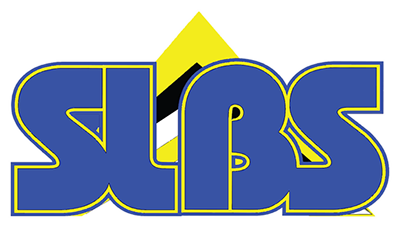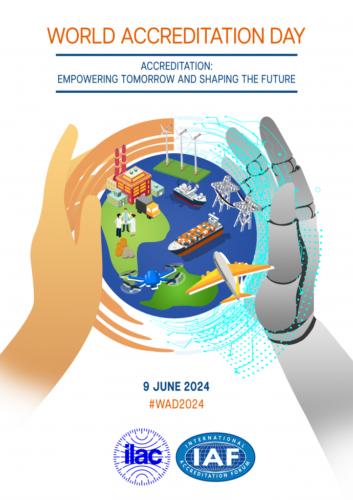World Accreditation Day 2024
June 9th 2024 marks World Accreditation Day (WAD2024), a global initiative established by International Laboratory Accreditation Cooperation (ILAC) and International Accreditation Forum (IAF) to promote the value of accreditation.
The 2024 theme is ‘Accreditation: Empowering Tomorrow and Shaping the Future’ and aims to draw attention to how accreditation can provide confidence in new technologies, digitalization and sustainability claims as the world undergoes transformative change.
Accreditation is essential in a world marked by rapid technological advancement, shifting consumer behaviours and ongoing economic uncertainties. With the theme ‘Accreditation: Empowering Tomorrow and Shaping the Future’, this year’s World Accreditation Day highlights the role of accreditation in harnessing emerging opportunities and addressing global challenges.
At the forefront of this transformative era is the Fourth Industrial Revolution (IR 4.0), characterized by the integration of digital technologies such as artificial intelligence (AI), robotics, Internet of Things (IoT) and big data analytics into society and industry. These technologies are fundamentally altering how we interact, produce, and innovate.
By providing a framework of trust and reliability, accreditation enables organizations to confidently embrace new technologies and drive innovation. Whether in manufacturing, healthcare or agriculture, accredited conformity assessment confirms that new products and processes meet rigorous requirements, facilitating their adoption and integration into existing systems. Testing and inspection provide confidence in product safety and regulatory compliance. Data protection and cybersecurity schemes help businesses to implement comprehensive data protection processes, guard against increasingly sophisticated cyberattacks, and safeguard customer privacy.
IAF, ILAC and the wider conformity assessment community have sought to both embrace and respond to technological change. A recent example is the development of the ISO/IEC 42001 Information technology — Artificial intelligence — Management system standard, which was published in December 2023.
As the first global AI management system standard, it seeks to address transparency, accountability and ethical considerations as the use of AI grows rapidly across sectors. This standard underscores the commitment of the community to adapt to evolving technological landscapes and ensure that AI systems are developed and used responsibly.
As new technologies emerge, environmental and human rights issues persist. Environmental, Social and Governance (ESG) considerations have gained significant importance for consumers, businesses, regulators and investors in recent years. Consumers are becoming more aware of the environmental and social impacts of the products and services they purchase, leading to a growing demand for sustainable and ethically-produced goods.
Accredited conformity assessment allows companies to demonstrate their commitment to socially and environmentally responsible practices in their operations and supply chains, and provides consumers and regulators with trust in ESG performance data.
As we transition towards a circular economy that promotes reuse and regeneration, accreditation can provide confidence in the safety, efficiency, reparability, durability, upgradability, recyclability and reusability of products. Accredited tests, measurements, and validation and verification services also bolster worldwide efforts to combat climate change by supporting energy efficiency initiatives, renewable energy production, and carbon emission reduction efforts.
It’s important to note that these examples of change are only some of the wide range of changes that IAF, ILAC and accreditation are addressing. Priorities will continue to shift as new challenges and opportunities emerge, perhaps from changes not yet foreseeable. IAF and ILAC are confident that as the world continues to evolve, accreditation will continue to remain a steadfast foundation for progress, empowering businesses, protecting consumers and advancing global prosperity.

